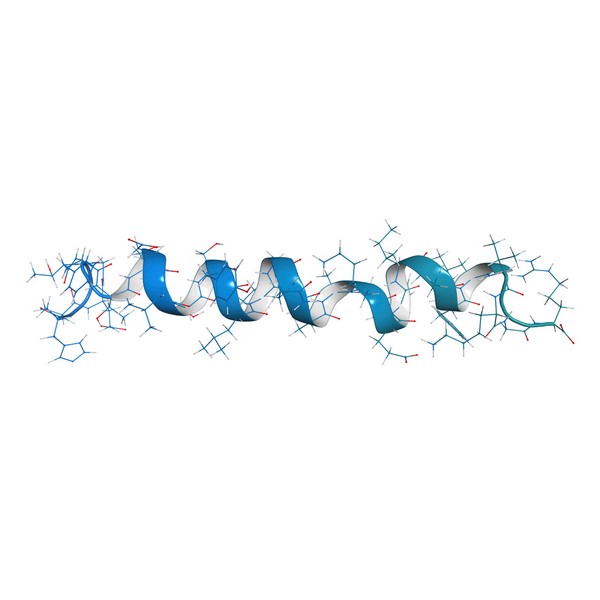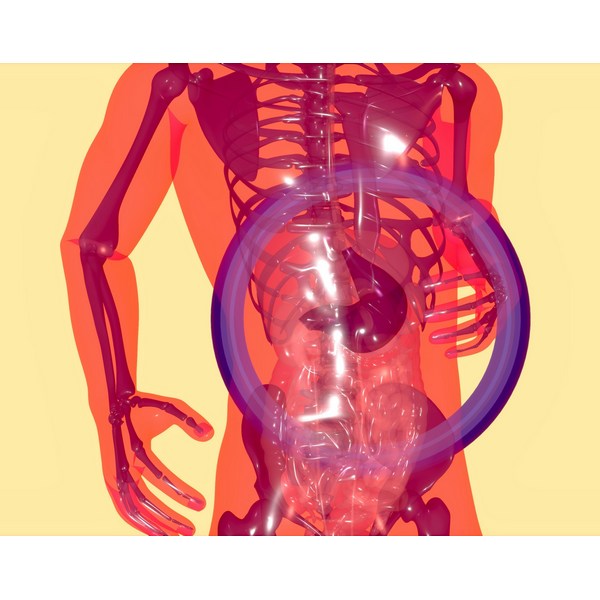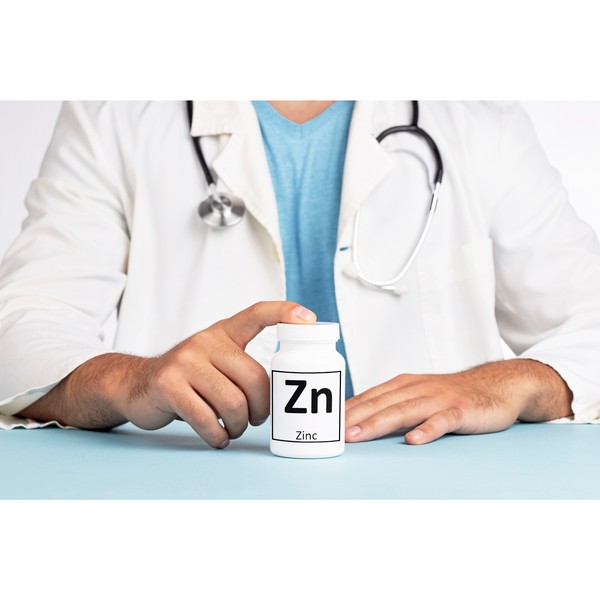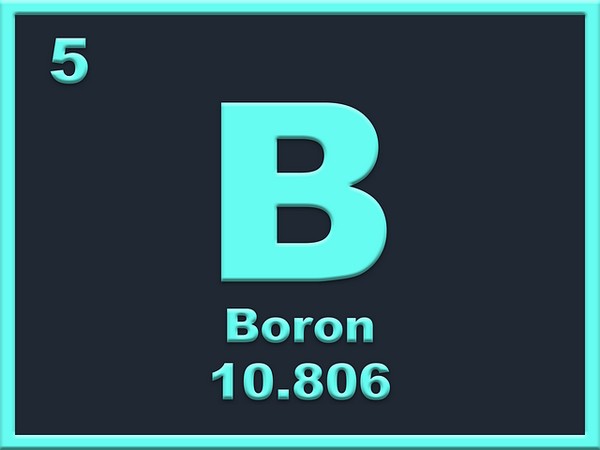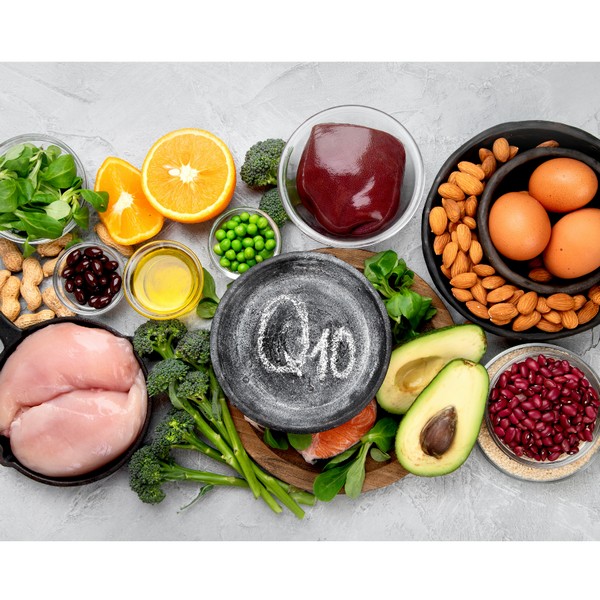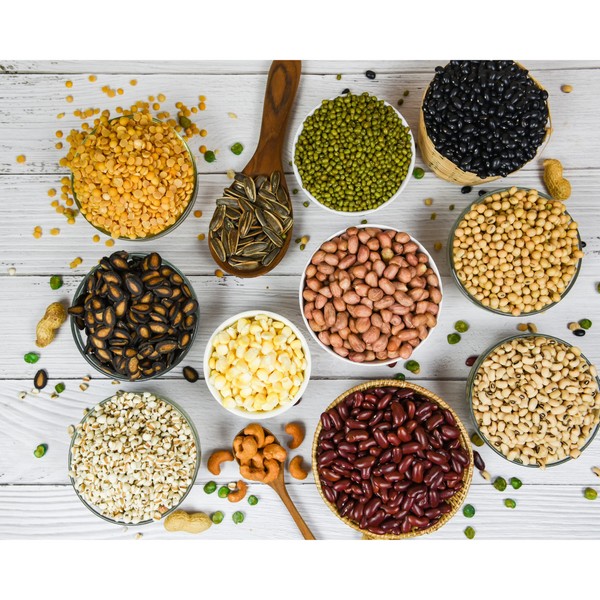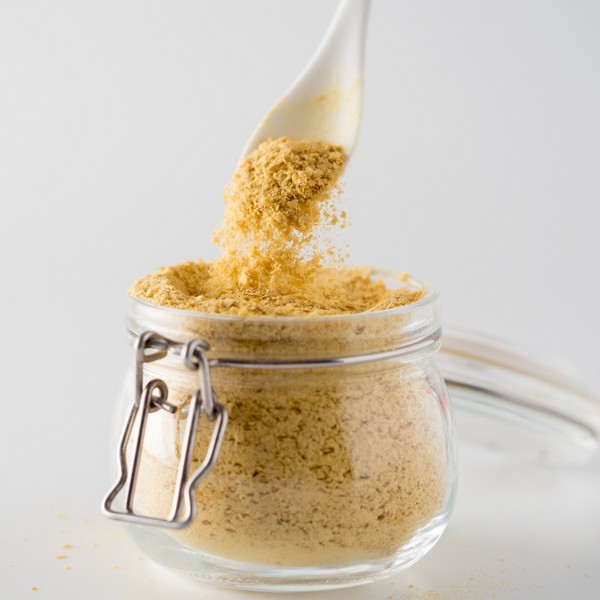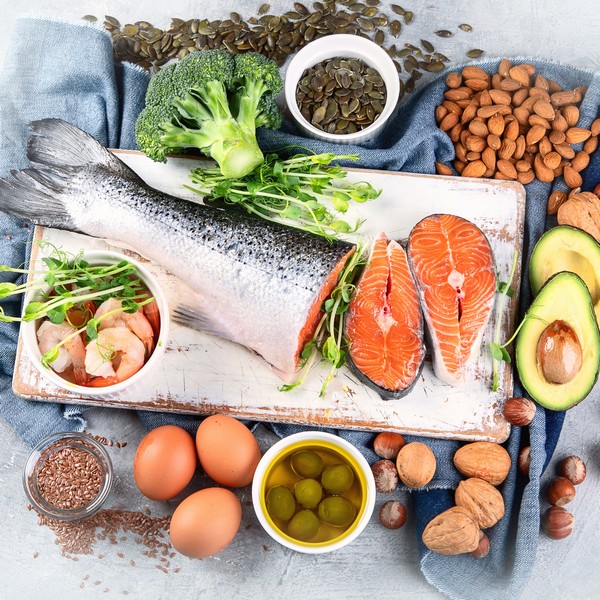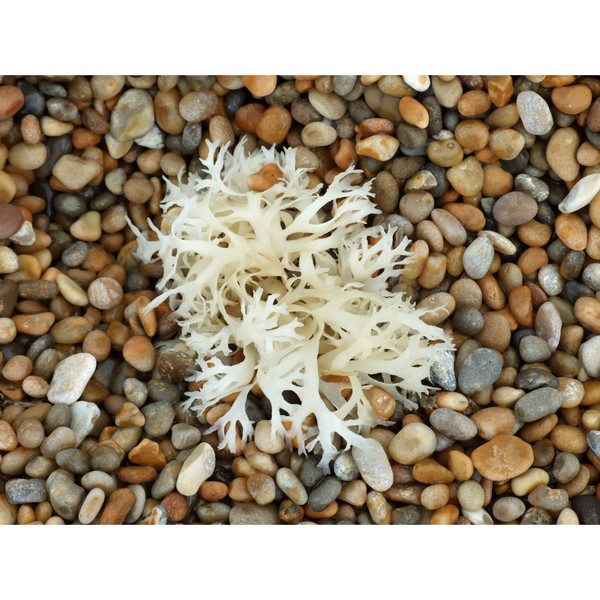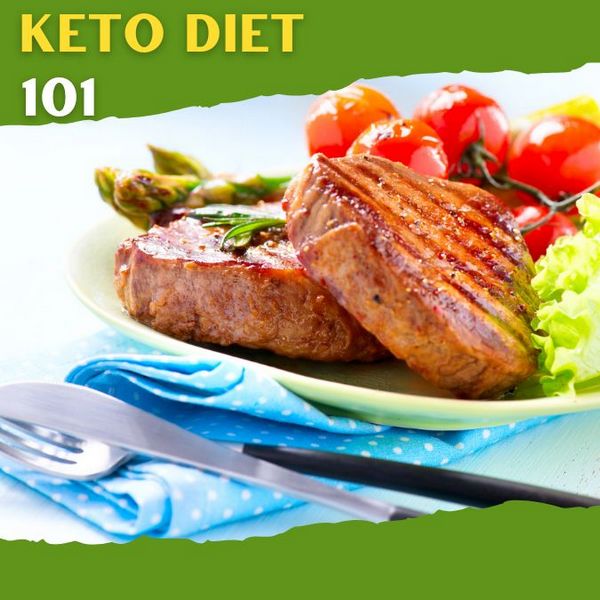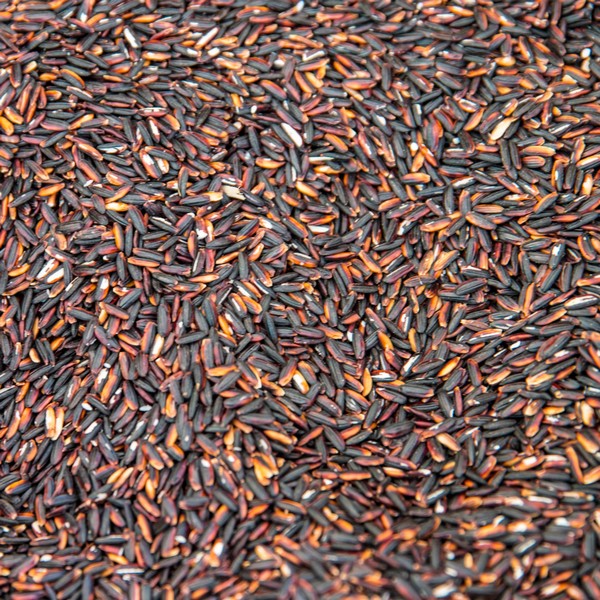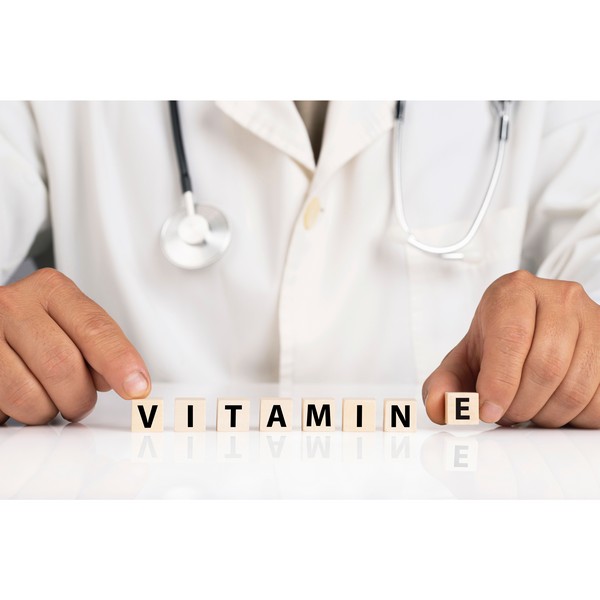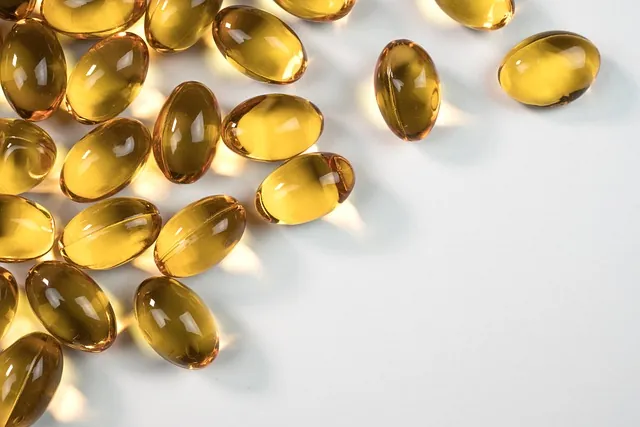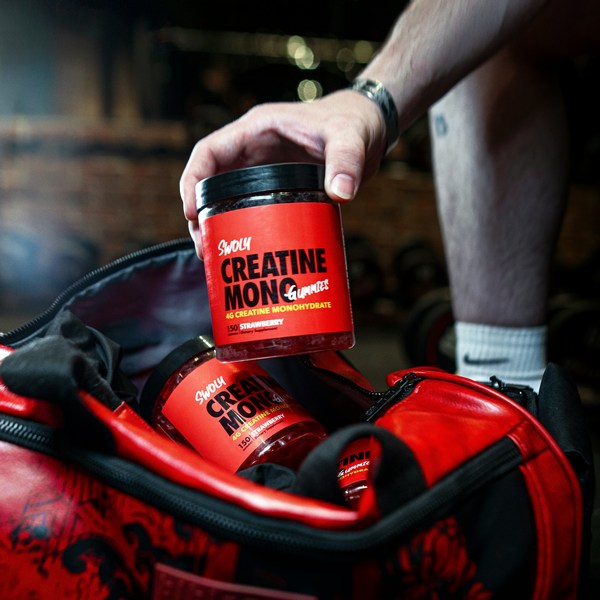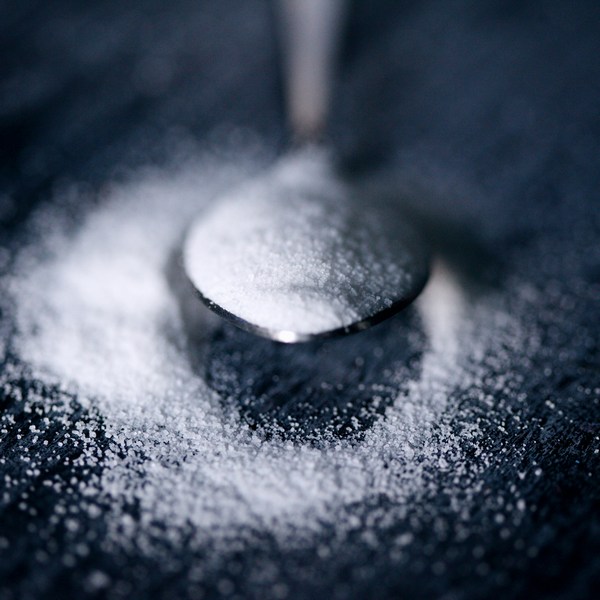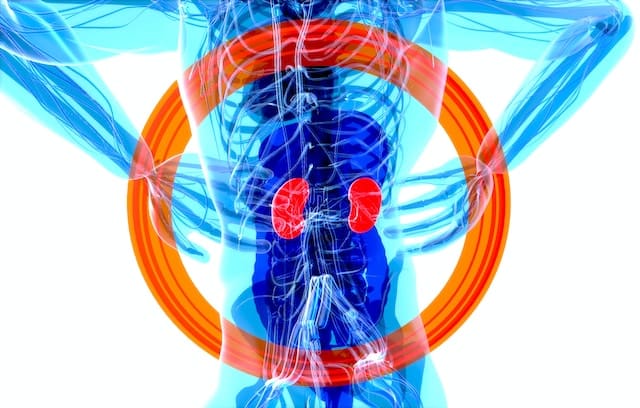Key Takeaways
- Potassium is essential for regulating fluid balance, nerve signals, and muscle function.
- It supports heart health and helps maintain proper blood pressure.
- Adequate potassium intake can prevent kidney stones and support bone health.
- Deficiency may lead to muscle weakness, cramps, and irregular heartbeats.
- Potassium sources include coconut water, avocados, and leafy greens.
What is Potassium?
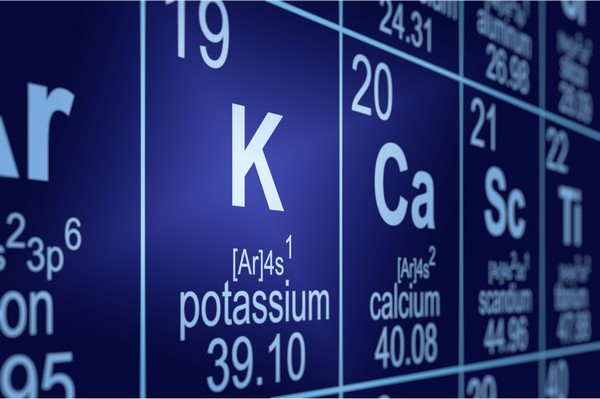
Potassium is an important mineral and electrolyte that plays a vital role in the body. It helps regulate fluid balance, supports nerve signaling, and ensures that muscles, including the heart, function properly.
Maintaining healthy potassium levels is necessary for overall health, particularly for blood pressure management.
Benefits of Potassium
- Heart Health: Potassium helps manage blood pressure by balancing the effects of sodium. This balance reduces the risk of hypertension and stroke. Adequate potassium levels support healthy blood vessels, promoting better blood flow and reducing heart strain.
- Bone Health: Adequate potassium intake is associated with better bone density and a reduced risk of osteoporosis. Potassium helps neutralize acids in the body that can lead to calcium loss from bones, which is essential for maintaining bone strength.
- Kidney Health: Potassium helps prevent kidney stones by reducing calcium loss in the urine. A diet rich in potassium can lower the risk of developing kidney stones, often caused by excessive calcium in the urine.
- Muscle Function: Potassium is necessary for proper muscle contractions. A lack of potassium can lead to muscle weakness and cramps. Ensuring adequate potassium intake supports overall muscle strength and function.
Sources of Potassium

- Coconut water
- Cream of tartar
- Leafy Greens
- Avocados
- Potatoes
- Bananas
- Supplements: While food sources are preferred, potassium supplements are available. These should be taken with caution and under the supervision of a healthcare provider, as excessive potassium intake can lead to health issues.
Potassium Deficiency
- Signs and Symptoms: A lack of potassium can result in muscle weakness, cramps, fatigue, and irregular heartbeats. Severe deficiency can lead to more serious health problems, including heart issues.
- Causes: Potassium deficiency can stem from a poor diet, excessive fluid loss (through sweating, diarrhea, or vomiting), and the use of certain medications, such as diuretics.
- Risks: Chronic deficiency can lead to significant health concerns, including an increased risk of hypertension, heart disease, and stroke.
Maintaining Adequate Potassium Levels
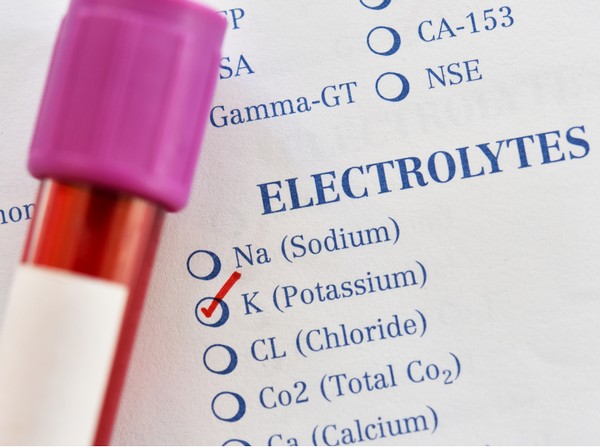
- Dietary Recommendations: To maintain healthy potassium levels, it’s important to consume potassium-rich foods regularly. The recommended daily intake varies, but generally, adults should aim for about 2,500 to 4,700 milligrams per day.
- Balance with Sodium: Electrolytes and trace minerals need to be balanced in the body. While potassium helps lower blood pressure, isolated sodium can raise it. Maintaining this balance is essential for cardiovascular health. Supplemental magnesium is often recommended.
- Supplements: In some cases, supplements may be necessary, especially if dietary intake is insufficient or if there are medical reasons for low potassium levels. However, potassium supplements should be used carefully and under medical advice.
Potential Side Effects and Considerations
- Excess Potassium: While potassium is important, too much can be harmful. Excessive potassium levels can lead to hyperkalemia, a condition that affects heart function and can be life-threatening if not managed properly.
- Medication Interactions: Certain medications can influence potassium levels. For example, some blood pressure medications, like ACE inhibitors, can increase potassium levels. Monitoring potassium intake is important if you are on such medications.
- Special Considerations: Individuals with kidney disease or other health conditions affecting potassium excretion should be cautious about potassium intake. These individuals are at higher risk for hyperkalemia and should manage their potassium levels with their healthcare provider’s guidance.
Conclusion
Potassium is essential for overall health, supporting heart function, muscle contractions, and maintaining fluid balance. Ensuring adequate potassium intake through a diet rich in fruits, vegetables, and other potassium-containing foods is crucial for preventing deficiency and promoting long-term health.
FAQ
What are the best sources of potassium?
Foods like bananas, potatoes, avocados, and leafy greens are excellent sources.
Can I take potassium supplements?
It’s generally better to get potassium from food, but supplements may be needed in certain situations.
What happens if I don’t get enough potassium?
Deficiency can lead to muscle weakness, cramps, and irregular heartbeats.
Is it possible to have too much potassium?
Yes, excessive potassium can lead to hyperkalemia, a condition that can affect heart function.
How does potassium affect blood pressure?
Potassium helps lower blood pressure by balancing the effects of sodium.
Research
D’Elia, L., 2024. Potassium Intake and Human Health. Nutrients, [online] 16(6), p.833.
https://doi.org/10.3390/nu16060833.
Freedman, M. R., Fulgoni, V. L., & Lieberman, H. R. (2024). Temporal changes in micronutrient intake among United States Adults, NHANES 2003 through 2018: A cross-sectional study. The American Journal of Clinical Nutrition, 119(5), 1309-1320. https://doi.org/10.1016/j.ajcnut.2024.02.007
Greer, R.C., Marklund, M., Anderson, C.A.M., Cobb, L.K., Dalcin, A.T., Henry, M. and Appel, L.J., 2020. Potassium-Enriched Salt Substitutes as a Means to Lower Blood Pressure. Hypertension, [online] 75(2), pp.266–274. https://doi.org/10.1161/hypertensionaha.119.13241.
He, F. J., & MacGregor, G. A. (2008). Beneficial effects of potassium on human health. Physiologia Plantarum, 133(4), 725-735. https://doi.org/10.1111/j.1399-3054.2007.01033.x
Laskowski, M., Augustynek, B., Kulawiak, B., Koprowski, P., Bednarczyk, P., Jarmuszkiewicz, W., & Szewczyk, A. (2016). What do we not know about mitochondrial potassium channels? Biochimica et Biophysica Acta (BBA) - Bioenergetics, 1857(8), 1247-1257. https://doi.org/10.1016/j.bbabio.2016.03.007
McAllen, P.M., 1955. MYOCARDIAL CHANGES OCCURRING IN POTASSIUM DEFICIENCY. Heart, [online] 17(1), pp.5–14. https://doi.org/10.1136/hrt.17.1.5.
McLean, R. M., & Wang, N. X. (2021). Potassium. Advances in Food and Nutrition Research, 96, 89-121.
https://doi.org/10.1016/bs.afnr.2021.02.013
Murrell, T.S., Mikkelsen, R.L., Sulewski, G., Norton, R. and Thompson, M.L., 2021. Improving potassium recommendations for agricultural crops (p. 455). Springer Nature.
https://library.oapen.org/bitstream/handle/20.500.12657/46118/1/2021_Book_ImprovingPotassiumRecommendati.pdf
Palmer, B. F., & Clegg, D. J. (2016). Achieving the Benefits of a High-Potassium, Paleolithic Diet, Without the Toxicity. Mayo Clinic Proceedings, 91(4), 496-508.
https://doi.org/10.1016/j.mayocp.2016.01.012
Rude, R. K. (1989). Physiology of magnesium metabolism and the important role of magnesium in potassium deficiency. The American Journal of Cardiology, 63(14), G31-G34. https://doi.org/10.1016/0002-9149(89)90216-6
STERNS, RICHARD H. M.D.1; COX, MALCOLM M.D.2; FEIG, PETER U. M.D.3; SINGER, IRWIN M.D.2. Internal Potassium Balance and the Control of the Plasma Potassium Concentration. Medicine 60(5):p 339-354, September 1981.
Sebastian, A., Frassetto, L. A., Sellmeyer, D. E., & Morris, R. C. (2006). The Evolution-Informed Optimal Dietary Potassium Intake of Human Beings Greatly Exceeds Current and Recommended Intakes. Seminars in Nephrology, 26(6), 447-453. https://doi.org/10.1016/j.semnephrol.2006.10.003
Stone, M. S., Martyn, L., & Weaver, C. M. Potassium Intake, Bioavailability, Hypertension, and Glucose Control. Nutrients, 8(7), 444. https://doi.org/10.3390/nu8070444
Thier, S. O. (1986). Potassium physiology. The American Journal of Medicine, 80(4), 3-7. https://doi.org/10.1016/0002-9343(86)90334-7
Touitou, Y., Godard, J.P., Ferment, O., Chastang, C., Proust, J., Bogdan, A., Auzéby, A. and Touitou, C., 1987. Prevalence of magnesium and potassium deficiencies in the elderly. Clinical Chemistry, [online] 33(4), pp.518–523. https://doi.org/10.1093/clinchem/33.4.518.
Weaver, Connie M. PhD; Stone, Michael S. MS; Lobene, Andrea J. MS, RDN; Cladis, Dennis P. MS; Hodges, Joanna K. PhD. What Is the Evidence Base for a Potassium Requirement?. Nutrition Today 53(5):p 184-195, 9/10 2018. | DOI: 10.1097/NT.0000000000000298
Weaver, C. M. (2013). Potassium and Health. Advances in Nutrition, 4(3), 368S-377S. https://doi.org/10.3945/an.112.003533
Zacchia, M., Abategiovanni, M.L., Stratigis, S. and Capasso, G., 2016. Potassium: From Physiology to Clinical Implications. Kidney Diseases, [online] 2(2), pp.72–79. https://doi.org/10.1159/000446268.
Increase GLP-1 Agonists Naturally
Trimethylglycine TMG: Betaine Anhydrous Explained
L-Carnitine: Benefits, Dosage, and Side Effects
Key Takeaways L-Carnitine supports fat metabolism and energy production. Benefits include enhanced exercise performance and improved heart health. Proper dosing minimizes potential side effects. Understanding…
TUDCA Benefits for Health
Key Takeaways TUDCA promotes liver health, aiding cell protection and repair. Enhances digestion by improving bile flow and supporting gut health. May protect brain health…
Silica: for Healthier Skin, Hair, and Nails
Cholesterol Misconceptions: Separating Fact from Fiction
Key Takeaways: High inflammation and blood pressure are major risk factors for heart disease. Cholesterol is vital for hormone production, cell membrane structure, and digestion,…
Berberine Has 11 More Incredible Benefits Than You Thought
Berberine is a compound found in several plants that has been used for centuries in traditional Chinese medicine and Ayurveda. It has recently gained popularity…
Vitamin A (Retinol): Essential Nutrient for Health
Key Takeaways: Natural Vitamin A, also known as Retinol, is crucial for vision, immune function, and skin health. Retinol is essential for healthy vision, particularly…
Zinc Supplements: Risks and Dangers
Key Takeaways Zinc supports immunity, wound healing, and cell growth. High zinc supplement doses can cause health problems. Always consult a healthcare provider before taking…
Conjugated Linoleic Acid (CLA): Benefits & Sources
Key Takeaways CLA is a type of fatty acid found primarily in animal products like beef and dairy. Known for potential benefits such as weight…
Boron: Benefits of a Lesser-Known Mineral
Key Takeaways Boron is a trace mineral with significant health benefits. It supports brain function, bone health, and hormonal balance. Understanding boron’s role can improve…
Eggs: A Comprehensive Guide
Key Highlights Eggs are a nutritional powerhouse, containing all the essential vitamins and minerals needed for overall health. Vital role in a balanced diet, providing…
Spirulina: Health Benefits and Uses
Key Takeaways Spirulina boosts immune function with its high nutrient content and antioxidant properties. Rich in proteins and essential vitamins, enhances overall nutrition. Helps reduce…
6 Best Natural Ways to Manage Your Blood Sugar: A Quick & Easy Guide
1. Intermittent fasting2. Exercise3. Dietary fiber4. Sleep5. Weight loss6. SupplementationBioclinic NaturalsPGX BiotiquestSugar Shift Every time you eat it, it’s plotting something sinister. Sugar isn’t as…
CoQ10: What Is It and Why Is It Important?
Key Takeaways CoQ10 (Coenzyme Q10) is an antioxidant produced by the body, essential for energy production in cells. Levels of CoQ10 naturally decrease with age…
Postbiotics: What They Are and Why They Are Important
Key Takeaways Postbiotics 101: They’re beneficial by-products from probiotics that consume prebiotics Boosts Immunity: Postbiotics sharpen your immune system, helping fight off pathogens and reducing…
Calcium Supplements: What You Need to Know
Key Takeaways Calcium supplements have been linked to heart disease and kidney stones. Excess calcium from supplements can lead to imbalances and health issues. Natural…
Grains & Legumes Secretly Harming Your Health? Find Out Now!
Key Takeaways: – Grains and legumes contain antinutrients like lectins and phytic acid, which can interfere with nutrient absorption. – These foods may trigger digestive…
13 Most Dangerous Foods Revealed
Key Highlights Fugu, or pufferfish, is one of the most poisonous foods in the world, with its organs containing a neurotoxin that can paralyze motor…
Iron Overload: Symptoms & Prevention Tips
Key Takeaways: Iron overload happens when the body absorbs excessive iron, which can damage organs. Common symptoms include fatigue, joint pain, and skin changes. Early…
What You Need to Know About Salt and Your Health
Table of ContentsThe Health Benefits of Unrefined Sea SaltElectrolyte BalanceMineral ContentImproved HydrationBoosted Energy LevelsImmune SupportImproved DigestionBalanced pH LevelsReduced Water RetentionHeart Health SupportStronger Bones and TeethEnhanced…
Red Palm Oil: Unveiling The Potent Health Benefits
Struggling to find the right oil for your health and kitchen? Red palm oil is packed with nutrients that might just be what you need….
5-HTP: Natural Ways to Boost Serotonin and Improve Mood
Key Takeaways: 5-HTP is a natural compound that helps boost serotonin levels in the brain. It can support mood regulation, sleep improvement, and stress reduction….
Benefits of Nutritional Yeast
Key Takeaways Nutritional yeast is a rich source of vitamins and minerals. It supports immune function and promotes skin health. Its cheesy flavor makes it…
ALA vs. DHA & EPA Omega-3: Why Source Matters
Key Takeaways ALA (Alpha-Linolenic Acid) is found in flaxseeds, chia seeds, and walnuts, but converts poorly to DHA and EPA. DHA and EPA are critical…
Taurine: The Mighty Amino Acid for Optimal Health
Key Takeaways Taurine supports heart health, regulates blood pressure, and reduces oxidative stress. Essential for muscle function, brain health, and cognitive function. Aids in insulin…
Benefits of Sea Moss Explained
Key Takeaways Rich in Nutrients: Sea moss is packed with essential vitamins, minerals, and antioxidants, supporting overall health and wellness. Supports Immune Function: Its high…
The Impact of Ultra-Processed Foods on Your Wellbeing
Every bite we take is a step toward either wellness or illness. In our fast-paced world, ultra-processed foods have become a staple, silently shaping our…
Natural Treatment for Irritable Bowel Syndrome (IBS): Effective Remedies Explored
Understanding IBSSymptoms of IBSRole of Diet in IBSNatural Remedies for IBSSupplements for IBSRole of Probiotics in IBSFrequently Asked Questions Understanding IBS Irritable Bowel Syndrome (IBS)…
Keto Diet 101: A Complete Beginner’s Guide
Key Highlights The ketogenic diet is a low-carb, high-fat diet that can lead to weight loss and has many health benefits. By reducing carbohydrate intake…
Copper: Little-Known Health Benefits
Key Takeaways Copper is an essential trace mineral with benefits, including ceruloplasmin production, energy production and antioxidant properties. Copper is critical for brain health by…
Protein: You probably need more
Key Takeaways Protein is needed for building and repairing body tissues. It supports muscle growth, immune function, and hormone production. Bioavailable sources of protein include…
Medium Chain Triglycerides (MCTs): Uncovering 5 Health Benefits
This potent, natural source of energy has gained considerable attention in recent years for its impressive array of benefits. MCT oil is a versatile addition…
Whole Food Vitamin C Complex: Expert Tips for Health
Key Highlights Whole food vitamin C complex is essential for a strong immune system and overall health. Unlike synthetic ascorbic acid, whole food vitamin C…
Liver: 5 Surprising Benefits Backed by Science
Hold on! Don’t run away! You need to read this. Liver is a highly nutritious organ meat that is often overlooked in modern diets. Packed…
11 Electrifying Health Benefits of Trace Minerals
What are Trace Minerals?The Major Roles of Trace MineralsSources of Trace MineralsDeficiencies in Trace MineralsThe Impact of Trace Minerals on Specific Health ConditionsFrequently Asked Questions…
Do This! The Ultimate Guide to Fasting Safely and Effectively
In our increasingly busy lives, finding time to take care of our bodies can often take a backseat. One method that has gained attention recently…
Actual Superfoods: Real Foods You Should Be Eating
Key Takeaways Superfoods are nutrient-dense foods, offering essential vitamins, minerals, and fats. Prioritize high-quality sources for optimal nutrition. They support overall health, boost energy, and…
Bee Pollen: Nature’s Secret Superfood
Key Takeaways Bee pollen is packed with essential nutrients and offers numerous health benefits. It supports immune function, boosts energy, and promotes overall well-being. Adding…
Tallow: Benefits, Uses, and Nutrition
Key Takeaways: Tallow is a nutrient-rich animal fat with many practical uses. It contains valuable vitamins such as A, D, E, and K. Tallow is…
Is Eating Sugar Really That Bad For Your Health?
Should You Really Be Concerned? In short, YES! Thank you, that’s all folks, and do have a good evening. Seriously though, extensive research has established…
Allulose: The Best Sugar Alternative
Key Takeaways Allulose is a low-calorie sweetener found naturally in some fruits. It does not raise blood sugar levels, making it suitable for diabetics. Allulose…
Healthy Fat: is Butter Better?
Key Takeaways Saturated fats, like those found in butter, may not be as harmful as once thought and can be part of a healthy diet….
How Collagen Supports Healthy Skin, Joints, and More
Key Takeaways Collagen is the most abundant protein in the body, supporting the structure of skin, bones, and connective tissues. It helps maintain skin elasticity,…
5 Major Benefits of Omega-3 Fatty Acids
Key Takeaways Omega-3 fatty acids support heart health by reducing triglycerides and lowering blood pressure. They play an important role in brain function and development,…
L-Glutamine and Gut Health: Benefits and Side Effects
Key Takeaways L-Glutamine is essential for gut health. Benefits include improved digestion and reduced inflammation. Potential side effects are rare but can occur in high…
How Stabilized Rice Bran Supports Digestive & Heart Health
Key Takeaways – Stabilized rice bran is a nutrient-rich source of vitamins, minerals, and antioxidants. – The stabilization process prevents rancidity, making it a long-lasting…
Vitamin E Complex
Key Takeaways Vitamin E is a powerful antioxidant that protects cells from oxidative damage, reducing the risk of chronic diseases. The vitamin E complex includes…
How Cod Liver Oil Can Transform Your Health and Wellness
Cod liver oil has been used for centuries as a natural remedy for various health conditions. Packed with essential nutrients and fatty acids, cod liver…
Creatine Myths Debunked: Separating Fact from Fiction
Key Takeaways Common myths about creatine, such as it causing kidney damage, weight gain, and being a steroid, are widespread but unsupported by scientific evidence….
Carnivore Diet: Benefits, Risks, Food List & More
Key Takeaways The carnivore diet is a keto diet that only allows for animal-based foods, and has potential health benefits. Tips for success include hydrating,…
8 Key Signs of Nutrient Deficiency
Key Takeaways Magnesium: A multitasker that aids in over 300 biochemical reactions in the body. Copper: Supports neurological function, cardiovascular and immune system health, iron…
Magnesium: Better Sleep, Stress Relief and More
Do Artificial Sweeteners Cause Weight Gain? The Surprising Truth
Key Takeaways – Artificial sweeteners may disrupt gut microbiome balance, impacting digestion and immune health….
What You Need to Know About Salt and Your Health
Table of ContentsThe Health Benefits of Unrefined Sea SaltElectrolyte BalanceMineral ContentImproved HydrationBoosted Energy LevelsImmune SupportImproved…
How To Optimize Your Weight Loss Efforts
1. Get Your Beauty Sleep for Optimal Weight Loss2. Natural Solutions for Weight Loss3. Stress…
11 Amazing Tips to Improve Your Sleep Quality
Limit Power NapsModulate Sunlight ExposurePay Attention to CaffeineSchedule BedtimePlan Ahead for DinnertimeMelatonin: Not what you…
7 Simple Tips for Lowering Blood Pressure Naturally
Maintaining healthy blood pressure levels is essential for overall well-being, as high blood pressure can…
Proteolytic Enzymes and Heart Health: What the Research Shows
Your heart works tirelessly to pump blood throughout your body, delivering essential nutrients and oxygen…
Is Eating Sugar Really That Bad For Your Health?
Should You Really Be Concerned? In short, YES! Thank you, that’s all folks, and do…
Natural Treatment for Irritable Bowel Syndrome (IBS): Effective Remedies Explored
Understanding IBSSymptoms of IBSRole of Diet in IBSNatural Remedies for IBSSupplements for IBSRole of Probiotics…
Medium Chain Triglycerides (MCTs): Uncovering 5 Health Benefits
This potent, natural source of energy has gained considerable attention in recent years for its…
7 Remedies for Kidney Stones: A Comprehensive Guide
Key Takeaways Staying well-hydrated and adopting a balanced diet can help prevent kidney stones. Knowing…
Berberine Has 11 More Incredible Benefits Than You Thought
Berberine is a compound found in several plants that has been used for centuries in…
